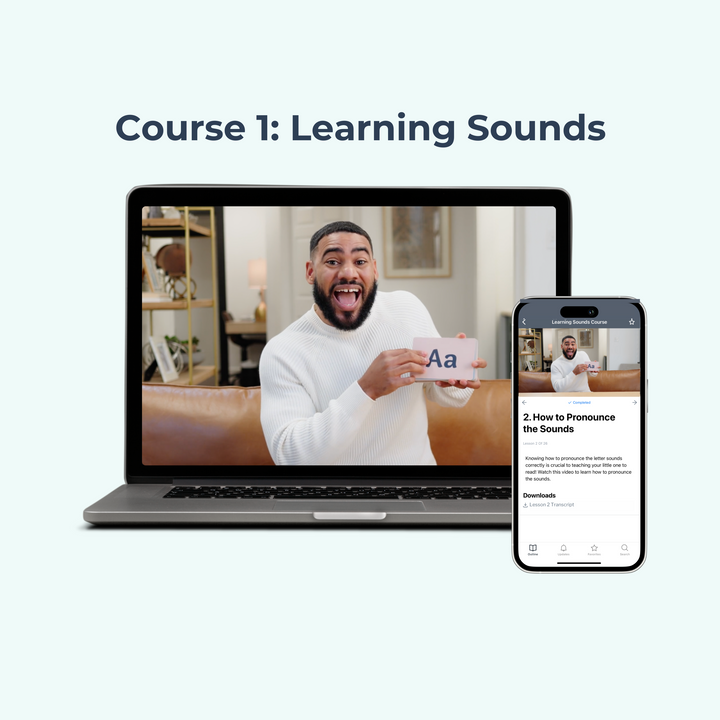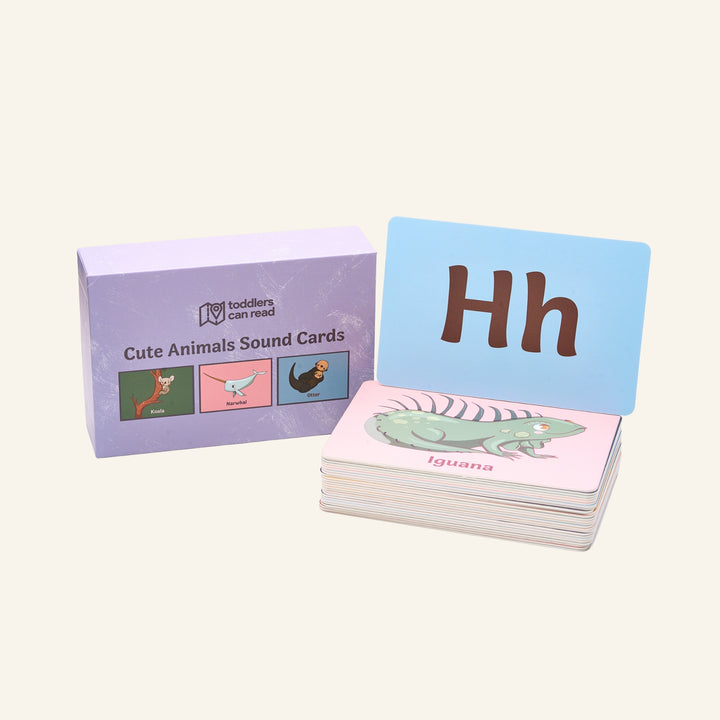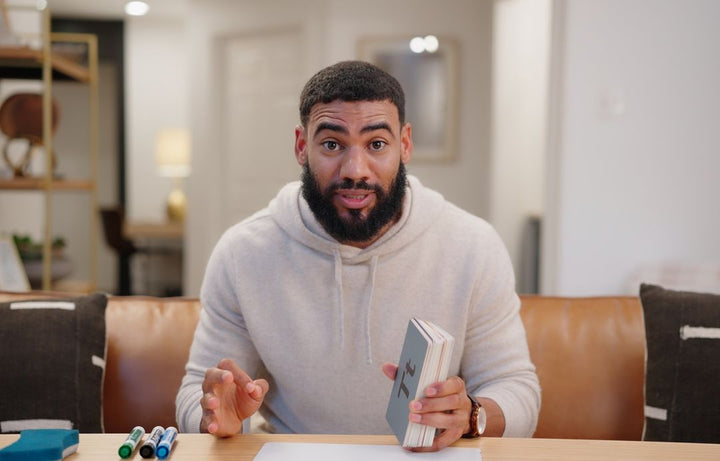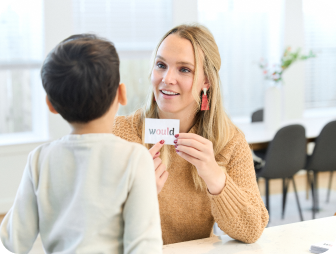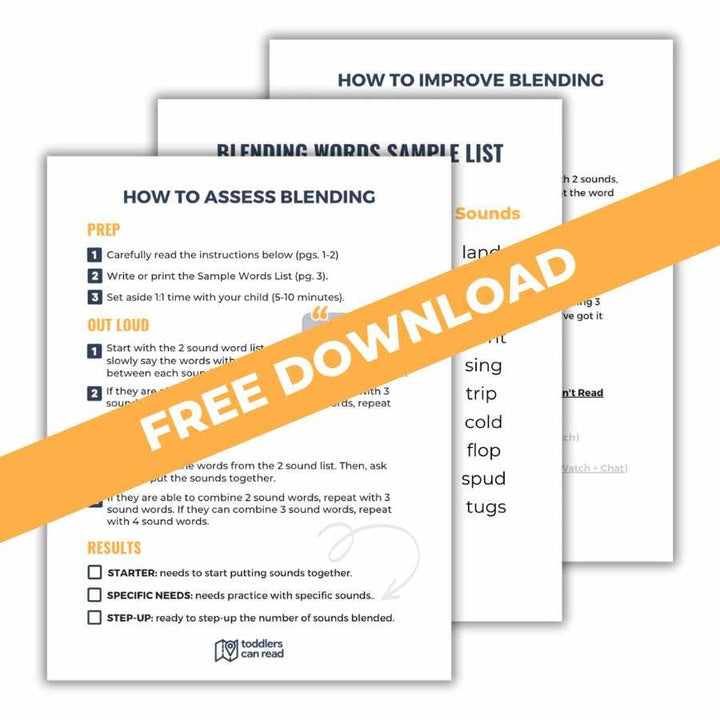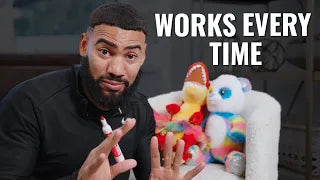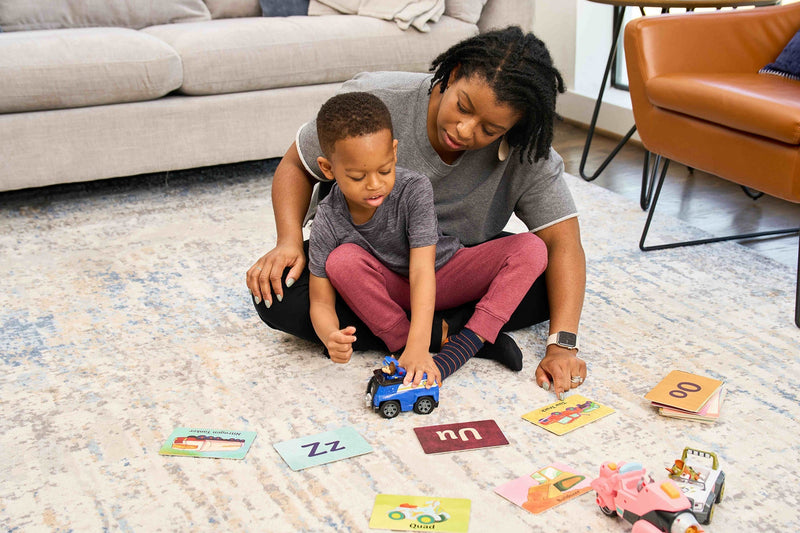- You do not need to teach your toddler to read.
- You do not NEED to teach your toddler how to read.
- YOU do not need to teach YOUR toddler how to read.
And now that we've gotten that out of the way... let's answer the question: CAN you teach your toddler how to read?
And this isn't a question for everybody. This is a question for parents of children 18 months- 4 years old who:
- love reading and want their kids to love it too, or
- hate reading and want their kids to feel better about it, or
- want to build on their child's interest in books and letters, or
- believe it will help their child get a head start in school, or
- see the impact of early learning on their child's confidence.
Put simply, this is a question for parents who believe that early reading will somehow benefit their child's life. And for these parents, I'm going to answer the question: Can yourtoddler learn how to read?
And just to be clear at the outset: if you finish reading this and believe yes, your toddler can read: that's great news! But it does NOT mean that you need to teach them. That's a personal decision for you to make.
But to even decide whether to teach your child how to read, you need to know whether or not it's possible. Can they actually do it?
So let's break it down:
Myth: Toddlers CAN'T actually read.
"Sure, maybe some toddlers can memorize a word or two, but they definitely can't actually READ."
OK, here's the deal.
I knew before I started the business and named it "Toddlers CAN Read" that there would be many, MANY people who didn't believe that toddlers could read.
And I don't blame them. Many of us didn't learn how to read until we were 5-7 years old, and even then, it was hard for us. So how in the world could a 2 to 4-year-old do it?
So then we go search on Google. Or YouTube. Or Instagram. Or TikTok. We want to see REAL videos of toddlers reading in action.
And instead... we find videos like this of babies "reading" before they can speak or videos like this of children memorizing random flashcards, or countless other videos of little children doing things that are NOT actually reading. And it confirms our suspicion: reading must be way too hard for them.
It doesn't help that the most popular toddler parent influencers go out of their way (and out of their lane) to tell you that children will just learn to read 'naturally' when they're ready.
And while this claim has been essentially proven false by all scientific research... we still believe it. Because, well... it sounds right. After all, most toddlers struggle with seemingly simple tasks like using the bathroom on their own, communicating ideas, expressing their emotions, and apparently using basic kitchen utensils.
So the logic goes like this: if toddlers don't look like they're smart enough to read, AND most of the videos of toddlers reading are clearly fake, AND my favorite influencer tells me they can't read, then they must not be able to read.
And I get it because I used to think that way too. Even as a kindergarten teacher.
Because let's be real: most of us need to "see it to believe it."
This is why I didn't believe toddlers could actually read... until I met a 3-year-old named Sophie, who taught me a lesson that literally changed my life and eventually my career: toddlers CAN read just as well as older children... IF they're taught how to do it.
If you prefer stories...
Sophie was the younger sister of my one kindergarten student, and her mom was one of the parent volunteers who spent time in my classroom.
And while I had seen Sophie come in and out of the classroom with mom before, we had never interacted much as she was noticeably shy around my kindergarten students.
The first time I remember really hearing her voice was when our school celebrated Dr. Seuss Day (I know, I know... I don't think they celebrate it anymore) when her mom mentioned to me that her 3-year-old daughter knew how to read.
Immediately I was skeptical. I knew that kids that age could memorize or repeat certain words, but I did not know whether they could actually decode (read) new words on their own.
But mom was insistent. She told me that her 3-year-old was an even better reader at this age than her sister. This was no small feat considering her sister was the best reader in kindergarten. So I told her I'd love to see it for myself. If nothing else, I thought it might be cute to watch a toddler mimic reading.
One of the other teachers and I had combined classes for the celebration that day. When mom, Sophie, and I entered the classroom, the other teacher was reading a Dr. Seuss book to our kindergarteners, packed around the carpet.
I checked with mom quickly to make sure it was a book Sophie had never seen/read before, and she confirmed it wasn't. So we asked the other teacher if it would be OK for 3-year-old Sophie to take the teacher's chair and continue reading from where she left off, and she agreed.
So little Sophie climbed up in the teacher's chair, and... began to read. Like, actually read.
She read words quickly if she already knew them and stopped to sound them out if they were new. And she did this page after page to the surprise of everyone in the room... except for her mom.
You see, what I saw that day has stuck with me for years. It impacted me as a teacher and my beliefs about my students. It impacted me as a dad and my beliefs about my son.
Because sure, after hearing Sophie read, I could have decided: that kid must have just been born different, special, gifted, hyperlexic, baby Einstein... Regular kids could never do that! And I would have found plenty of bloggers, influencers, and educators who would have echoed that feeling and told me that Sophie was an anomaly.
But I didn't. I believed what her mom said when she told me there was nothing inherently special about her daughter: she was just taught how to read from a young age.
And as a result, I taught my own (non-gifted) son to read at 2 years old and I am helping thousands of parents from around the world do the same thing with their little ones.
If you prefer research...
I get it. The idea that toddlers can actually read is a relatively groundbreaking idea that may challenge much of the information you've heard. However, research has shown that many of the misconceptions about reading have no factual basis.
In his work studying the eight most common misconceptions of toddlers learning to read, Miho Steinberg explains that the false belief that two-year- old children are intellectually too young to learn how to read stems from the fact that most people (including educators) haven't seen the progress a child can make with their own eyes.
And I tend to agree. After all, I myself didn't believe it was possible either (until I did.)
And for those folks who have already made up their minds that toddlers can't read, it's veryeasy to take research completely out of context and twist the findings to support what they believe. They'll cite studies with small sample sizes, limited demographics, poor methods, or under-qualified researchers...
And even when they do find quality research, they'll often make sweeping generalizations or oversimplify the findings in order to draw conclusions that don't actually support the claim they're trying to make.
For example, it's not uncommon for people to quote the science of brain development as evidence that toddlers aren't capable of reading.
Some will argue that the Visual Word Form Area (VWFA) of the brain that allows a child to read does not develop until around age 6. But if you take a closer look at the actualimplications this has on learning to read, you'll find that the role that the VWFA plays is still widely debated within the scientific community.
Not only that, but this argument doesn't acknowledge the other components of brain development at play while a child is learning how to read (a process that is MUCH more complex than understanding just one area of the brain.)
In contrast, there is plenty of (legitimate) research that has been done on brain development to support the idea that toddlers' brains are actually working to their advantage when it comes to learning to read.
For example: between the ages of 9-24 months, toddlers become 'symbol-minded.' Which means they can start connecting the relationship between a picture and what it represents (e.g. a letter and the sound it makes.)
Taken further, science tells us that our synapses (or the links that connect one brain cell to another) are where our learning occurs (e.g., learning the letter sounds or learning how to blend).
Research also tells us that the average two-year-old has twice as many synapses as adults, allowing them to learn faster than at any other time in their life.
"Children's brains develop in spurts called critical periods. The first occurs around age 2, with a second one occurring in adolescence. At the start of these periods, the number of connections (synapses) between brain cells (neurons) doubles. Two-year-olds have twice as many synapses as adults. Because these connections between brain cells are where learning occurs, twice as many synapses enable the brain to learn faster than at any other time of life. Therefore, children's experiences in this phase have lasting effects on their development." -Rishi Sriram, associate professor in the School of Education at Baylor University
And according to Early Childhood Specialist Dr. Sally Goldberg, "Experiences in early childhood are more formative than those for older children and adults because they are factored in by 'total percentage of experiences.' ...All learning is represented by connecting synapses in the brain. The brain starts off in infancy and early childhood growing in a rapid fire learning rate- which is why it is easier to learn a second language as a toddler than as an adult... The brain continues growing and connecting synapses over a lifetime, but the process slows drastically as we age."
Summary: Most of the folks telling you toddlers can't read are citing research that is either inaccurate, inconclusive, or unrelated to the conclusion they're making. And they get away with it because they know you won't fact-check them.
In comparison, we know not only that toddlers CAN read, but there is strong research to suggest that they may actually have an advantage over older children in learning how to read.
If you prefer common sense...
You can think about it like this. Learning to read requires two main skills. Both toddlers are very capable of (and perhaps even primed for) doing.

Step 1- Learning the Letter Sounds: Learning to read means knowing the sounds that letters make and how to blend those sounds together to make words. And learning those letter sounds is no easier and no harder than learning colors or shapes: it's simply memorizing a symbol (like the letter O says /o/) which toddlers are GREAT at.
Step 2- Blending the Sounds Together: So after they know their sounds, they'll need to be able to blend those sounds together into words. And while this is a different task than simply memorizing a symbol, toddlers are more than capable of doing this when they are taught how to do it.
You can see this blending skill in action here with Lethu and her mom, who taught her how to read at 2 years old.
And all of this is to say that if toddlers can memorize the letter sounds (they can), and are also capable of blending those sounds together into words (they are), then toddlers CAN read. And it's really as simple as that.
So is it difficult to teach a toddler something new? Of course. Is the internet full of fake videos of toddlers reading? Yup. But CAN toddlers actually read? Yes. And not only can they, but children between the ages of 2-7 years old have incredible brains that allow them to learn more and learn faster than they can when they're older.
Still, teaching your little one to read is a personal decision that is based on your individual child's needs. Not sure if your little one is ready to read? Take this quiz to find out.
But is it developmentally appropriate?
So you might be thinking: "OK, so maybe toddlers can read... but that still doesn't mean it's developmentally appropriate for them to learn how to do it."
And if this is what you think, you're definitely not alone. But you're also not correct. Stay tuned for a full breakdown in part 2: Is Teaching Toddlers to Read Developmentally Appropriate?
-Spencer
